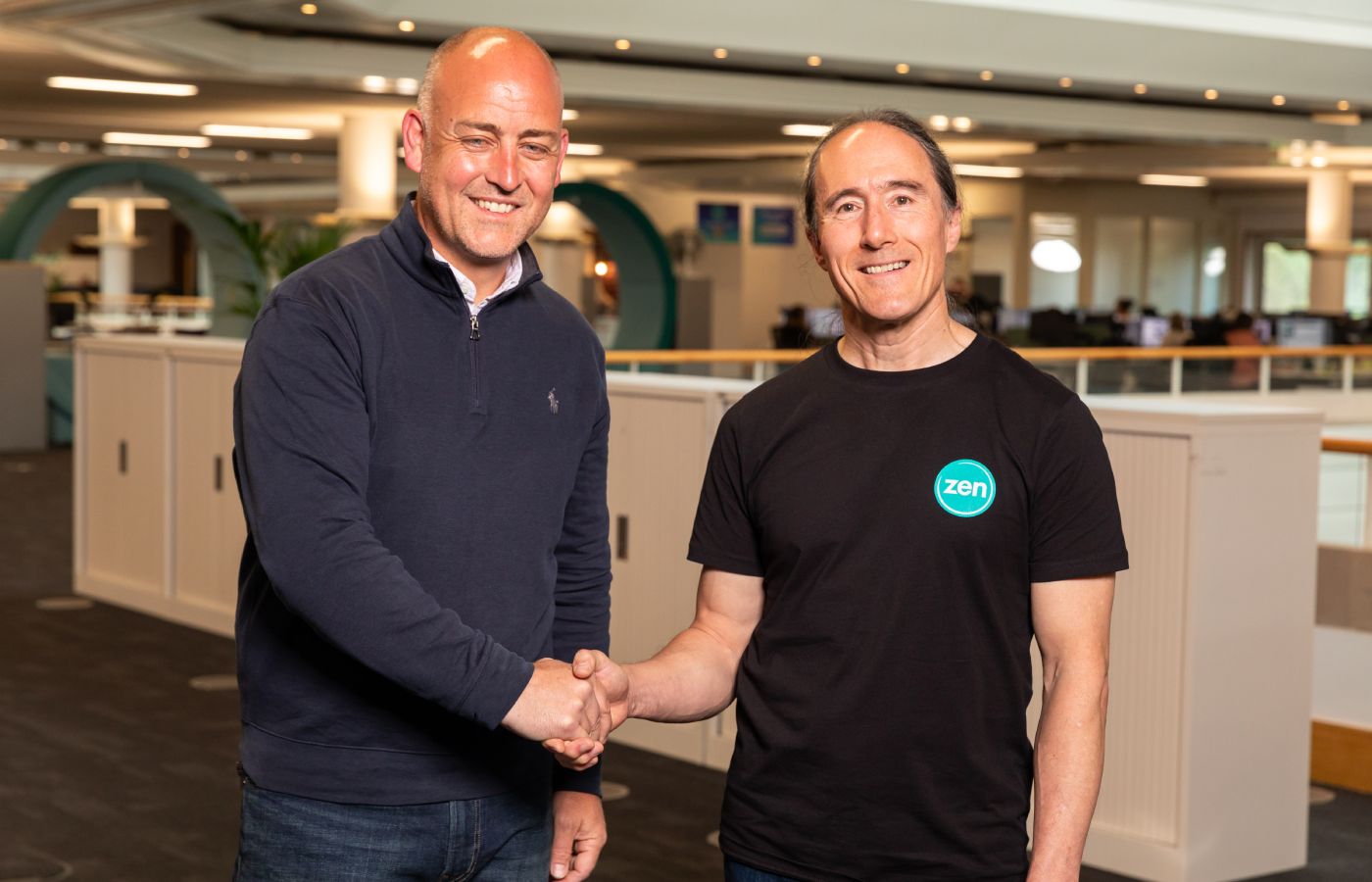9 top tips and personal insights from our Head of HR, Sarah Howard Illston
What is the secret of our success for being recognised by Great Place to Work®, as one of the UK’s Best Workplaces™? We have also been awarded accolades of Best Workplaces™ for Women, Best Workplaces™ for Development, Best Workplaces™ for Wellbeing and Best Workplaces™ in Tech.
Well, there are many factors, and we certainly can’t claim all the credit within our People & Culture team alone, but one of the key ingredients in being Great Place to Work® certified is our consistent and genuine commitment to Diversity, Equity, Inclusion & Belonging (DEIB). Easy to say, even easier to pay lip service to, but harder to know exactly what to do.
Rather than highlight research that we can all find online, I thought I’d share some personal insights and tips that I’ve learnt over the past six years, specifically in my role as Chair of Zen’s DEIB Committee and more generally in my role as Head of HR, from a DEIB perspective..
1. Inclusion
Employing and working with nice people, doesn’t make you immune from facing society’s wider problems and inequities. Pay gaps exist for historical reasons outside of individual companies (even if some of the solutions lie within the company), unconscious bias is a human fact, as is conscious bias. People can feel ‘othered’ and excluded if you don’t work to include them, and if you don’t stop and acknowledge these truths then nothing will change. Just because people aren’t raising grievances doesn’t mean they are feeling included.
2. It takes time
You might want to jump in at the deep end and MAKE LOTS OF POSITIVE CHANGE... but the truth is, it takes time. A lot of time and a lot of effort. Even something as simple as asking people to share their diversity data so that you have baselines, and where to focus your efforts. We learnt quickly that the majority of existing colleagues don’t just hand that information over. They need to know why you want it, what are you going to do with it? They need to understand why it’s just as important to gather information from our straight white, middle-aged men as it is from our disabled women from an ethnic minority background. Otherwise, they just won’t share.
So, what did we do?
We were patient. We explained why it was important:
- Via all Staff emails and videos created by our DEIB network leads
- We talked about the positive contribution of our networks
- We tracked completion rates
- And the change that made the biggest difference was a change to our new starter process so that people were asked to share their data as part of the onboarding process. We found that at this point in their employment, they assumed (rightly) that we just wanted the information for positive reasons. Overall, we’ve moved from understanding 40% of our colleagues’ diversity data to over 80%.
3. Building trust
It’s not always obvious at first, what the changes needed actually are. It’s only in the last year or so (and we’ve been doing this for six years) that we’ve found out the deeper issues that people want to share with us. Unfortunately, I’m not sure that there is any short cut to building trust, so how do you go about it?
Well one thing we decided was that we wouldn’t promote our DEIB work on the external website until we could hand on heart say that we had delivered meaningful activities and actual change. This way, we wouldn’t look like we were paying lip service to DEIB. We changed the language on job specs using a gender decoder, we ran Pride BBQs, we ran Step into Tech programs for women, we trained our hiring managers on unconscious bias, long before we created our external DEIB pages.
We were open to suggestions from networks, we asked them for feedback on our family policies, we created new policies such as our Menopause policy and we took any problems that people shared, seriously and in a non-judgemental way.
4. Listening
Earlier on in my own research, I kept reading that it was important to listen to networks, that they needed a voice and that we should listen to their lived experience. I was so keen to do this that I ended up being frustrated that they weren’t providing us (the P&C team) with a long wish list. I mean, I’m here to help, why aren’t they asking me?! It took time to learn that we need to work together – that our experience in the P&C team marries with their lived experience to create something brilliant. It’s simply not fair to ask the people in networks to identify problems and produce the solutions themselves. This is partly because networks are made up of volunteers who might not have time to do all that, that being enthusiastic and having lived experience is not necessarily the same as knowing how to make a change or influence others in the organisation.
We need to empower people, but also support and guide at times. In practice, this means :
- Giving time and space for the networks to talk amongst themselves
- Giving them a mechanism to feed into the management and/or P&C team
- Consulting representatives of our networks on policies where we need examples or specific input e.g. examples in our Respect at Work Policy
- Reviewing our wording in Family leave policies
- Or checking that our imagery on job adverts is representative of our colleagues.
5. Support and guidance
Network leads need specific support and guidance. They need training and development to run a team of volunteers, write objectives, report on progress and understand their role in a committee. This can be formal training (our Head of People Development, Lien Hayes, developed a formal program for the REACH team leads), coaching support (I meet with less experienced leads) or online resources. And of course, collaboration and sharing progress, challenges and success are key.
6. Celebrate success
That it’s important to celebrate success to keep people motivated and to recognise their efforts. We have created infographics, posted on Viva (our internal social media platform), LinkedIn, sent out all staff emails and ran a fabulous in person session where each network got to stand up and explain in their own words, why their network was created – and the impact it was having on individuals.
This was followed by a People Party, hosted by our REACH team, with support from all other networks where we sampled cuisines from around the world, discussed our heritage, played games, and showed appreciation for each other – all without a drop of alcohol. We gave out badges too, so people could visibly show their support. We’ve found that having a recognised logo for each network, and a Zen DEIB logo, is important.
7. Learn on the job
For a long time, the fact that I am a CIS, straight, white, neurotypical, able-bodied woman, inhibited how much I felt I could contribute – even in my role as Chair of the DEIB committee. I didn’t want to tread on anybody’s toes, and I felt that despite my 25+ years in HR, I didn’t know as much as the network leads. It took attending a DEIB seminar where other allies were acting as leads, to free me up and give me the real confidence to speak. I focused on being a great ally, learning a much as I could and by being a voice in a senior position of the organisation, privileged enough to bring sensitive topics into the spotlight, without fear of being judged for doing so. Later on, I learnt that other people were looking at me to speak plainly on their behalf. So please do so. I also take my continuous development seriously and never pass up on the chance to learn more on this topic.
8. It's everywhere and everything
DEIB needs to be woven into the fabric of everything you do – from talent mapping to performance categories to wellbeing frameworks and leadership development. You can’t talk about it as an independent subject. We have woven it into our comms calendar, our guidance on talent mapping (encouraging managers to notice everyone, not just the loudest voices), we’ve included the topics of psychological safety and belonging in our bespoke health & wellbeing framework, and we’ve rolled out companywide training on what DEIB is.
9. When things go wrong
You can try hard and still get it wrong. When you do, you need to own it and keep going. This really isn’t any different to anything else you might work on. I’ve asked daft questions, I’ve tried to jump in and help when I should have been patient, I’ve sat back when I should have intervened, I’ve made assumptions, and I’ve made mistakes. But throughout, I’ve been non-judgemental and curious. I’ve accepted the gaps in my knowledge and tried to bridge them – through personal study, and speaking to, but mostly listening to people with experience. And I find reddit forums a fascinating resource for hearing other people’s unfiltered perspectives!
I could keep going, as I am learning each and every day. However, these are my top takeaways for you, and I hope that maybe one or two of my own learnings can help you on your own journey. Because at the end of this – it is fantastic to be recognised by Great Place to Work® as one of the UK’s Best Workplaces™. But I’ll tell you what’s equally as rewarding… and that’s when you see someone reach their potential who in the past may not have done, or you hear that one person who feels comfortable and happy working at Zen because of the prayer room, or our gender-neutral toilet facilities, or our Menopause Policy, or whatever it might be, and you see them thriving and you think, ’YES’! This is great for business, but its wonderful for our people. And I’m here for it. So, I’ll keep on going and keep on learning.
If you’d like more information, please have a look at our DEIB pages.

Zen Internet - Home SalesSales
01706 902573
Zen Internet - Customer EnquiriesCustomer Enquiries
01706 902001


